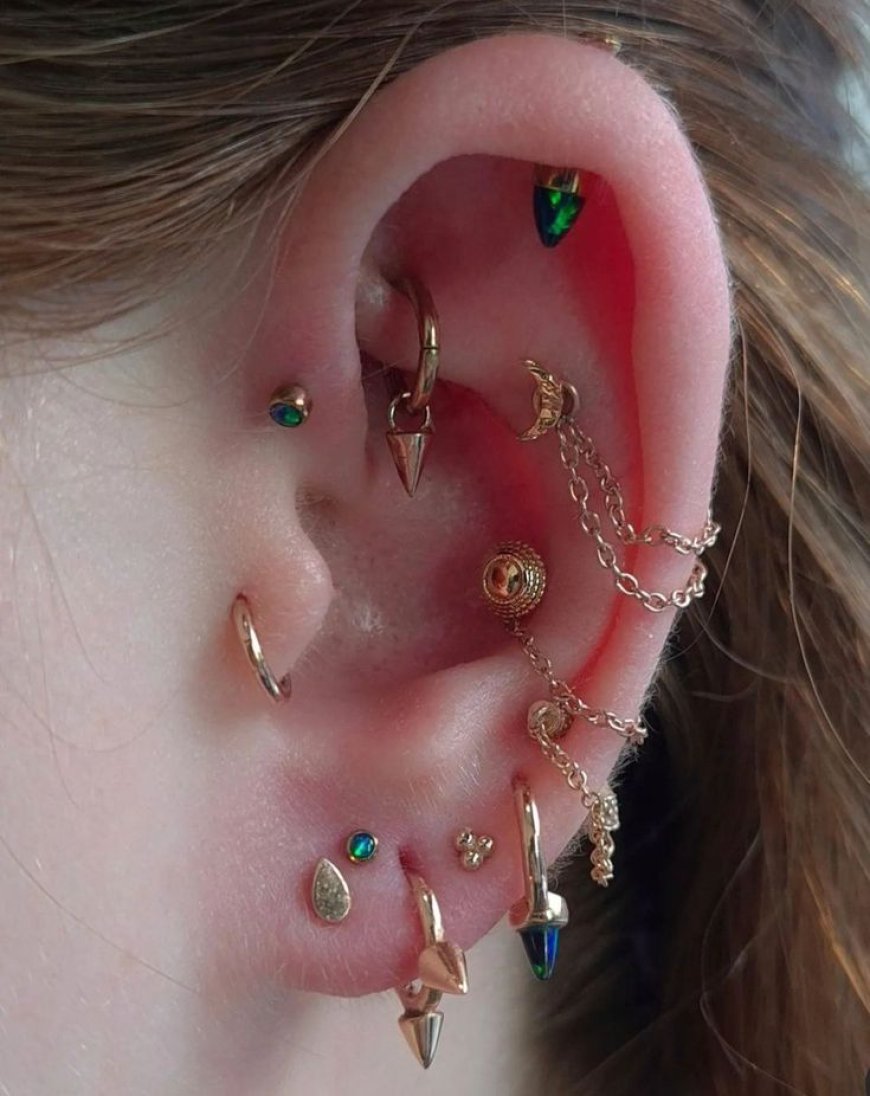How Long Does an Ear Piercing Take to Heal in Dubai?

Ear piercings have long been a popular way to express personal style and enhance one's appearance. Whether you’re getting your first ear piercing or adding another to your collection, one of the key factors to consider is the healing process. So, how long does an ear piercing take to heal in Dubai, and what do you need to know about aftercare to ensure the best results? Let’s explore the healing timeline, post-treatment care, and other essential tips to make sure your ear piercing heals quickly and without complications.
The Healing Process of an Ear Piercing: What to Expect
When you get an Ear Piercing in Dubai, whether it’s in the earlobe or cartilage, the healing process can vary depending on several factors. On average, ear lobe piercings typically take about 6 to 8 weeks to fully heal, while cartilage piercings can take anywhere from 3 to 6 months. However, these timelines can vary based on individual factors such as age, health, and how well you follow the aftercare instructions.
Key Factors That Influence Healing Time
-
Piercing Location:
- Earlobe piercings heal faster, typically within 6 to 8 weeks.
- Cartilage piercings, such as those on the upper ear, take longer—usually 3 to 6 months.
-
Your Body's Healing Ability: Some individuals naturally heal more quickly than others. If you have a strong immune system and follow aftercare instructions diligently, your piercing may heal faster.
-
Aftercare Routine: Proper aftercare is crucial to ensuring a smooth healing process. Poor care can lead to infections, prolong healing time, or cause complications such as keloid scars.
-
Piercing Jewelry Material: The material of the jewelry also affects the healing process. High-quality materials like titanium or 14k gold are less likely to cause allergic reactions or irritation, promoting faster healing.
The Ear Piercing Healing Timeline
To help you visualize the healing process, let’s break it down by weeks:
- Week 1-2: The initial healing stage. Your piercing may be a little swollen and tender. It’s important to avoid touching it with dirty hands.
- Week 3-6: The skin begins to form around the piercing hole. The tenderness should start to subside, and you’ll notice a reduction in redness or swelling. However, don’t rush to change the jewelry just yet.
- Week 6-8 (for earlobe piercings): At this stage, your ear piercing is nearing full healing. However, make sure to follow any specific care guidelines your professional gave you.
- Week 8-12 (for cartilage piercings): You’ll likely still feel some sensitivity around the piercing, but it should be less painful. This is when it’s crucial to continue cleaning the piercing and avoid sleeping on the side of the piercing.
The Importance of Aftercare for Fast Healing
Proper aftercare plays a vital role in reducing the risk of infections and ensuring your ear piercing heals quickly. Here are some aftercare tips for optimal healing:
-
Keep the Piercing Clean: Gently clean your ear piercing with saline solution or a mild antiseptic. Avoid using alcohol, hydrogen peroxide, or harsh chemicals as they can irritate the skin and delay healing.
-
Avoid Touching or Twisting the Jewelry: Hands carry bacteria, and unnecessary contact with the piercing can introduce germs. Only touch the piercing when absolutely necessary, and always wash your hands beforehand.
-
Sleep on the Opposite Side: If you’ve had a fresh ear piercing, it’s best to avoid sleeping on the side of the piercing until it has fully healed. This can reduce pressure and irritation.
-
Avoid Swimming: It’s advisable to avoid swimming in public pools, lakes, or hot tubs until your ear piercing has healed to prevent bacteria from entering the wound.
-
Choose Comfortable Jewelry: Stick with high-quality materials such as titanium or surgical steel for your jewelry. These are hypoallergenic and more likely to minimize irritation during the healing process.
Common Ear Piercing Issues and How to Handle Them
While the ear piercing healing process is generally straightforward, some individuals may experience complications. Here are some common issues and how to deal with them:
1. Infection:
If your piercing becomes red, swollen, or oozes pus, it could be infected. In such cases, clean the area with saline solution, and if the symptoms persist, seek professional advice from a piercer or medical professional.
2. Keloids:
Keloids are thick, raised scars that can develop around piercings. If you're prone to keloid formation, consider consulting a dermatologist for advice on how to prevent or treat them.
3. Jewelry Irritation:
Allergic reactions to the metal in your piercing jewelry can cause itching or redness. If this happens, switch to hypoallergenic materials like titanium or surgical steel, and allow the area to heal before reinserting new jewelry.
Why Healing Times May Differ in Dubai
Dubai’s hot, humid climate may affect the healing time of Ear Piercing Dubai for some individuals. Heat and sweat can irritate newly pierced ears, potentially leading to prolonged healing. Here are some additional tips for those in Dubai:
- Wear breathable fabrics and avoid excessive sweating near your piercing.
- Avoid direct exposure to the sun: Sunburn can irritate the healing area.
- Hydrate well: Keeping your skin healthy and hydrated can support the healing process.
Conclusion
Whether you're getting your first ear piercing or adding another, understanding the healing process is essential. While ear lobe piercings typically heal within 6 to 8 weeks, cartilage piercings can take up to 6 months. The key to a smooth and speedy recovery lies in proper aftercare, avoiding irritants, and giving your body the time it needs to heal naturally.
